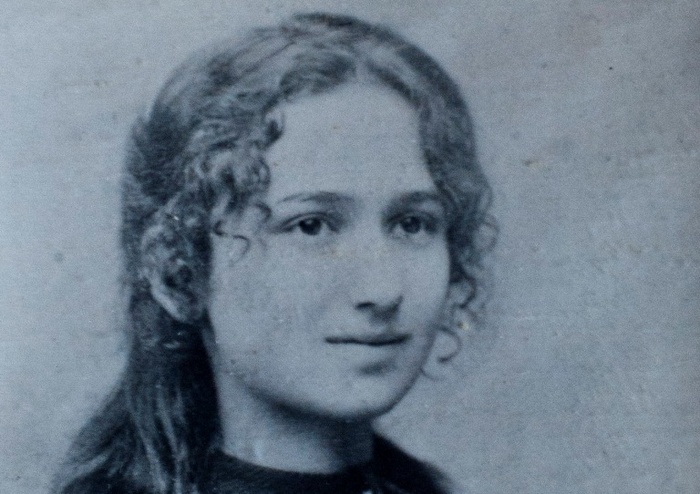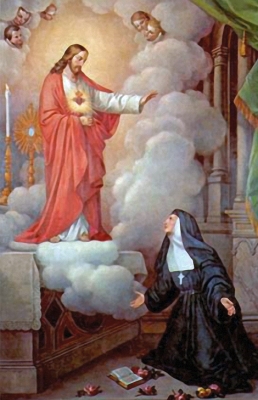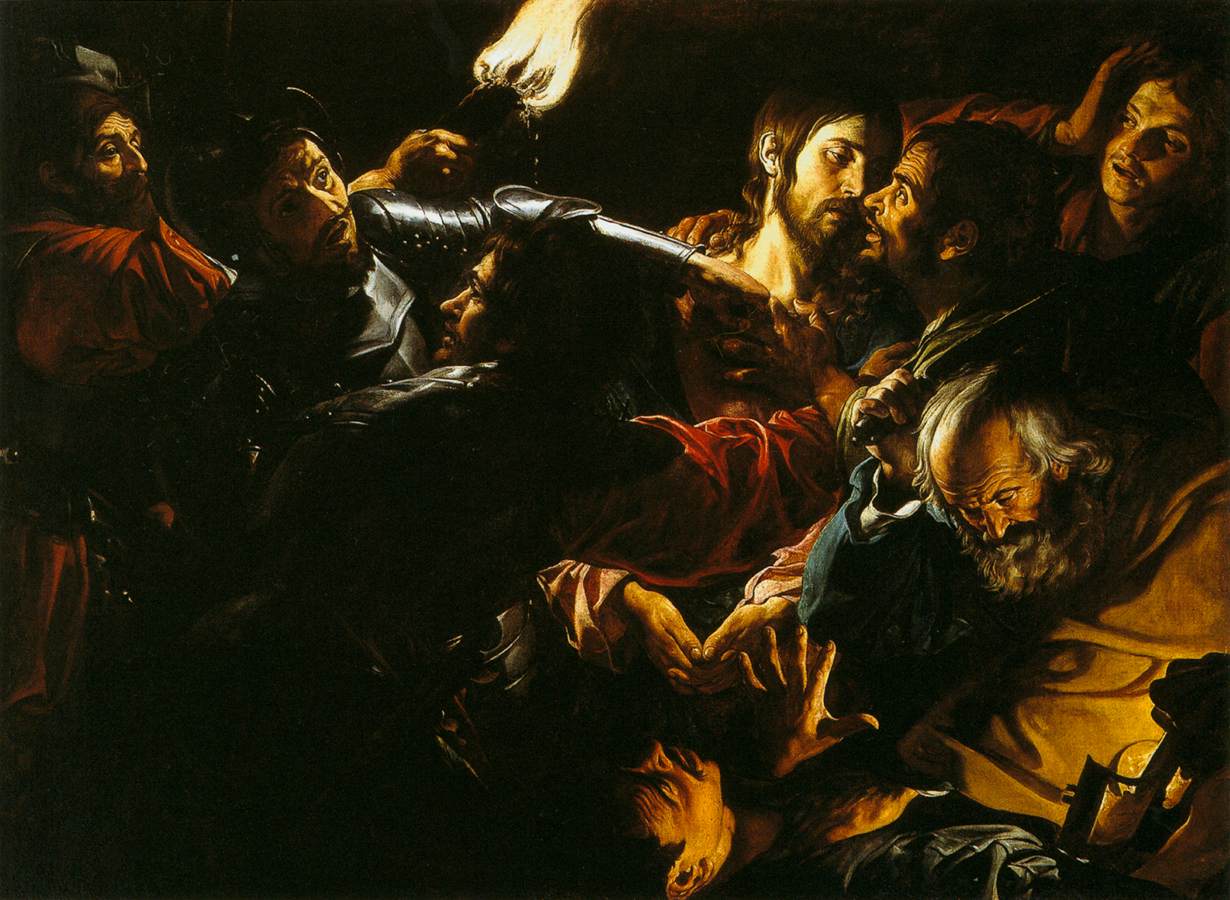Until a person stops looking for consolations or signs and wonders, no progress will be made in the spiritual life.
I am repeating from the perfection series a long piece from Garrigou-Lagrange. I am astounded that so many Catholics still follow false and unapproved seers.
We actually do not need seers at all. Apparitions which have been approved by Rome should be the only ones we follow.
Lourdes, Fatima, Akita....and so on. My comments are in blue.
Here is an important section I am repeating:
HOW THE PASSIVE PURIFICATION OF THE SENSES IS
PRODUCED
PRODUCED
This state is manifested by three signs which St. John of the
Cross describes as follows:
Cross describes as follows:
The first is this: when we find no comfort in the things of God, and none also in created things. For when God brings the soul into the dark night in order to wean it from sweetness and to purge the desire of sense, He does not allow it to find sweetness or comfort anywhere. It is then probable, in such a case, that this dryness is not the result of sins or of imperfections recently committed; for if it were, we should feel some inclination or desire for other things than those of God. . . . But still, inasmuch as this absence of pleasure in the things of heaven and of earth may proceed from bodily indisposition or a melancholy temperament, which frequently causes dissatisfaction with all things, the second test and condition become necessary.This lack of comfort yet with persistent and consistent prayer and devotion signals passive purgation. Dryness just means that God is taking the soul away from exterior consolations, including devotions and apparitions. If one is not willing to set aside following these things, and not concentrating on Christ alone, one will never experience purgation on earth.
The second test and condition of this purgation are that the memory dwells ordinarily upon God with a painful anxiety and carefulness, the soul thinks it is not serving God, but going backwards, because it is no longer conscious of any sweetness in the things of God. . . . The true purgative aridity is accompanied in general by a painful anxiety, because the soul thinks that it is not serving God. Though this be occasionally increased by melancholy or other infirmity - so it sometimes happens yet it is not for that reason without its purgative effects on the desires, because the soul is deprived of all sweetness, and its sole anxieties are referred to God. For when mere bodily indisposition is the cause, all that it does is to produce disgust and the ruin of bodily health, without the desire of serving God which belongs to the purgative aridity. In this aridity, though the sensual part of man be greatly depressed, weak and sluggish in good works, by reason of the little satisfaction they furnish, the spirit is, nevertheless, ready and strong.One becomes aware of one's incapacity to please God without grace. One actually knows how easily it would be for one to go to hell.
The cause of this dryness is that God is transferring to the spirit the goods and energies of the senses, which, having no natural fitness for them, become dry, parched up, and empty; for the sensual nature of man is helpless in those things which belong to the spirit simply. Thus the spirit having been tasted, the flesh becomes weak and remiss; but the spirit, having received its proper nourishment, becomes strong, more vigilant and careful than before, lest there should be any negligence in serving God. At first it is not conscious of any spiritual sweetness and delight, but rather of aridities and distaste, because of the novelty of the change. The palate accustomed to sensible sweetness looks for it still. And the spiritual palate is not prepared and purified for so delicious a taste until it shall have been for some time disposed for it in this arid and dark night. . . .(12)
Those who avoid suffering will never get to this place.
But when these aridities arise in the purgative way of the sensual appetite the spirit though at first without any sweetness, for the reasons I have given, is conscious of strength and energy to act because of the substantial nature of its interior food, which is the commencement of contemplation, dim and dry to the senses. This contemplation is in general secret, and unknown to him who is admitted into it, and with the aridity and emptiness which it produces in the senses, it makes the soul long for solitude and quiet, without the power of reflecting on anything distinctly, or even desiring to do so.
Now, if they who are in this state knew how to be quiet, . . . they would have, in this tranquillity, a most delicious sense of this interior food. This food is so delicate that, in general, it eludes our perceptions if we make any special effort to feel it; it is like the air which vanishes when we shut our hands to grasp it. For this is God's way of bringing the soul into this state; the road by which He leads it is so different from the first, that if it will do anything in its own strength, it will hinder rather than aid His work. Therefore, at this time, all that the soul can do of itself ends, as I have said, in disturbing the peace and the work of God in the spirit amid the dryness of sense.(13)
One can absolutely do nothing in this state but wait on God.
The third sign we have for ascertaining whether this dryness be the purgation of sense, is inability to meditate and make reflections, and to excite the imagination, as before, notwithstanding all the efforts we may make; for God begins now to communicate Himself, no longer through the channel of sense, as formerly, in consecutive reflections, by which we arranged and divided our knowledge, but in pure spirit, which admits not of successive reflections, and in the act of pure contemplation (to which the special inspiration of the Holy Ghost gives rise in us).(14)
One cannot force meditation. If it comes, it comes. Reflections dry up. The imagination becomes almost emptied of images. God wants to come Himself into the person's imagination without any impediments.
In regard to this third sign, St. John of the Cross points out that this inability to meditate in a reasoned or discursive manner "does not arise out of any bodily ailment. When it arises from this, the indisposition, which is always changeable, having ceased, the powers of the soul recover their former energies and find their previous satisfactions at once. It is otherwise in the purgation of the appetite, for as soon as we enter upon this, the inability to make our meditations continually grows. It is true that this purgation at first is not continuous in some persons." (15)
Though this state is manifested by two negative characteristics (sensible aridity and great difficulty in meditating according to a reasoned manner), evidently the most important element in it is the positive side, that is, initial infused contemplation and the keen desire for God to which it gives rise in us. It must even be admitted that then sensible aridity and the difficulty in meditating come precisely from the fact that grace takes a new, purely spiritual form, superior to the senses and to the discourse of reason, which makes use of the imagination. Here the Lord seems to take from the soul, for He deprives it of sensible consolation, but in reality He bestows a precious gift, nascent contemplation and a love that is more spiritual, pure, and strong. Only, we must keep in mind the saying: "The roots of knowledge are bitter and the fruits sweet"; the same must be said in a higher order of the roots and fruits of contemplation.
Some people are in the first two stages for years, some for weeks. This is the time when one is beyond mortal sin, being weaned of venial sin, and being purged of the tendencies to sin.
I am repeating much of what I have in the perfection series, but this is for the benefit of someone with whom I had a conversation last week.
St John of the Cross notes this:
"These aridities and the emptiness of the faculties as to their former abounding, and the difficulty which good works present, bring the soul to a knowledge of its own vileness and misery." (20)
This knowledge is the effect of nascent infused contemplation, which shows that infused contemplation is in the normal way of sanctity. St. John of the Cross says: "The soul possesses and retains more truly that excellent and necessary virtue of self-knowledge, counting itself for nothing, and having no satisfaction in itself, because it sees that of itself it does and can do nothing. This diminished satisfaction with self, and the affliction it feels because it thinks that it is not serving God, God esteems more highly than all its former delights and all its good works." (21)
St John of the Cross notes this:
"These aridities and the emptiness of the faculties as to their former abounding, and the difficulty which good works present, bring the soul to a knowledge of its own vileness and misery." (20)
This knowledge is the effect of nascent infused contemplation, which shows that infused contemplation is in the normal way of sanctity. St. John of the Cross says: "The soul possesses and retains more truly that excellent and necessary virtue of self-knowledge, counting itself for nothing, and having no satisfaction in itself, because it sees that of itself it does and can do nothing. This diminished satisfaction with self, and the affliction it feels because it thinks that it is not serving God, God esteems more highly than all its former delights and all its good works." (21)
to be continued...see labels perfection, perfection again, perfection series II, perfection series III, perfection series IV, perfection series V: Mary, perfection series V, perfection series VI, perfection series VIII, doctors of the Church






















